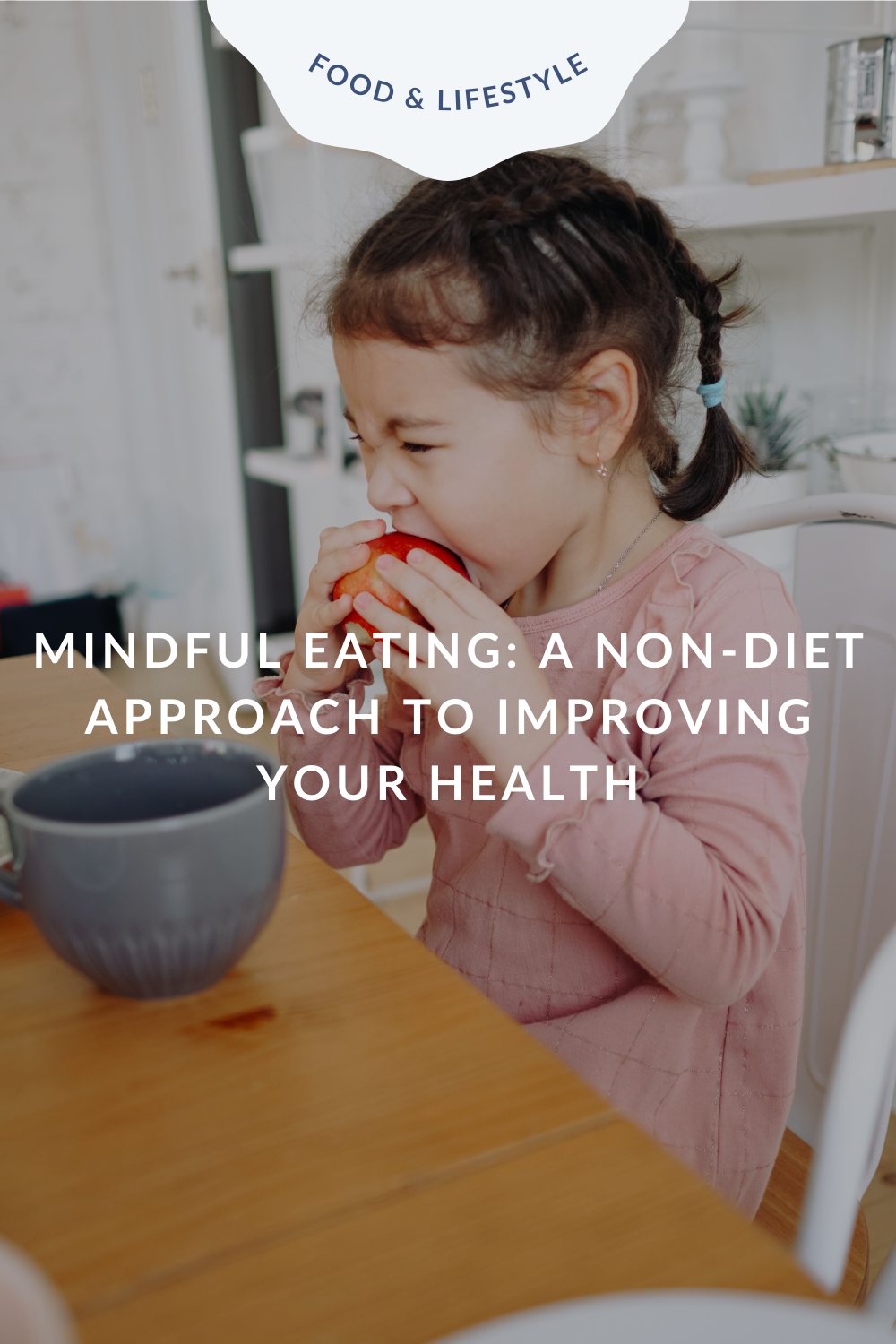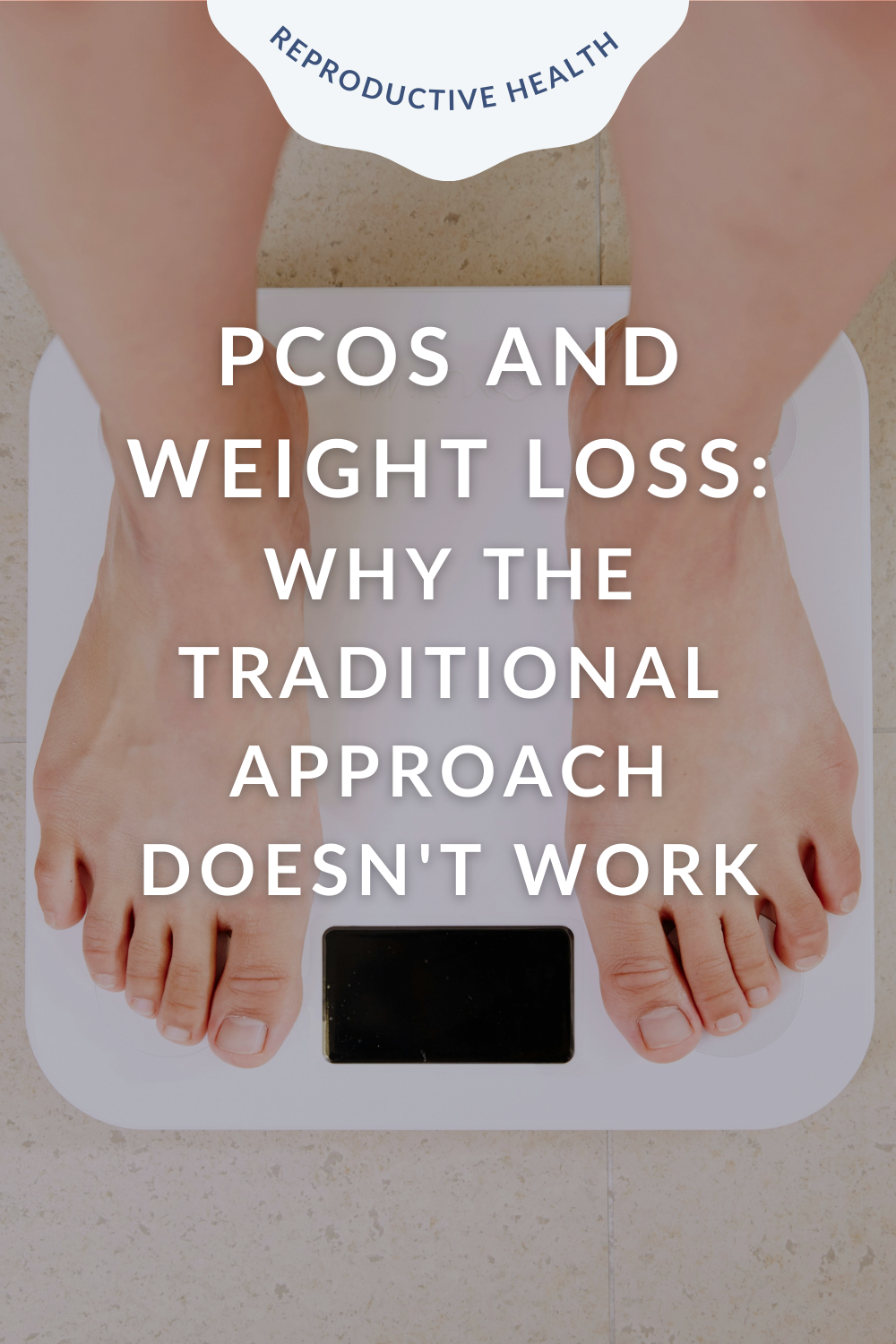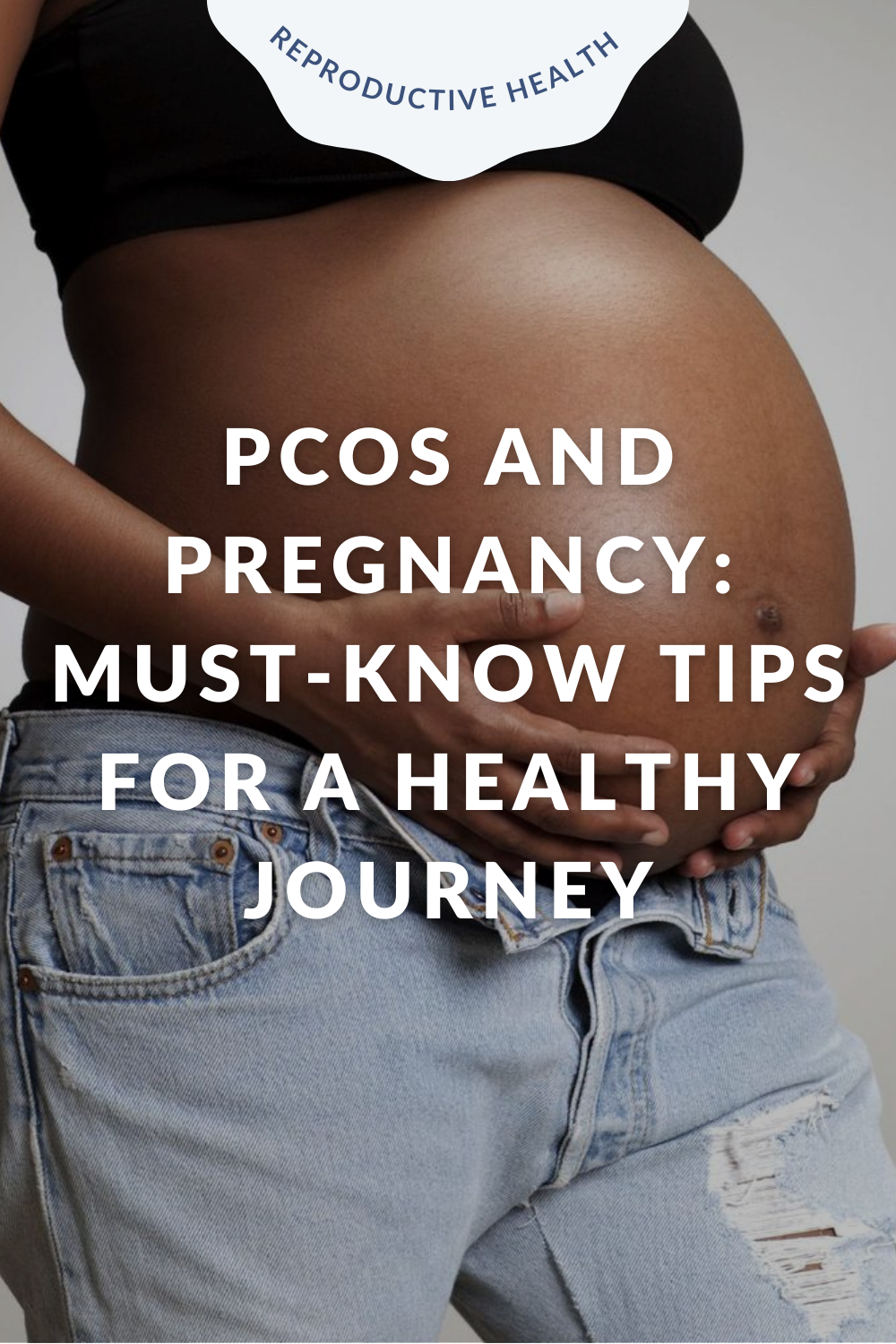Mindful Eating: A Non-Diet Approach to Improving Your Health
Picture this: You wake up committing to “behave” around food. You work through lunch, eating your lettuce and tomatoes on autopilot.
But, the “tasty, bad” foods are constantly looming in the back of your mind, despite your frantic schedule. Three o’clock hits, and like clockwork, you “give in” and indulge in a cookie. From there, it’s a downhill blur…ending in unsatisfactory late night snacks while Netflix and chilling.
Sound familiar? Thanks to our hustle culture and the $72.6 billion diet industry in the US (amongst many other factors), many of us are left with an intensely strained relationship with food.
Food is your best friend, yet your worse nemesis. It may be your source of comfort and joy, or a complete nuisance. Perhaps you struggle with the restrict and binge cycle. This may be particularly true if you’re living with PCOS, as research shows an increased odds of disordered eating (1).
Either way, if you’re struggling with your relationship with food, you’re not alone. Improving your relationship with food is a complex journey, one of which many interventions should be applied.
Mindful eating is one of the many tools that can be used in this journey. We’ve all heard of it, so what is it, exactly?
What is mindful eating?
Mindful eating is eating with intention and paying attention to the eating experience, without judgment (2).
That’s right, without judgment (it bears repeating)!
In essence, it’s approaching your meals with neutral curiosity. Rather than placing moral value on foods, such as calling them “good” or “bad”, you focus on your sensual and emotional experience while eating. In other words, you tune into your body cues and focus on how you feel.
This may sound SO foreign, but really, it’s about bringing it back to basics. For most individuals, we’re born with the ability to notice and process our sensory experiences (taste, texture, smell, and how they change over the course of a meal), and internal body cues (hunger and fullness levels).
Unfortunately, by adulthood, we’re so bogged down by life stressors, busy schedules, plus the constant pressure of diet culture to “eat clean”, that we’re totally disconnected from this bare bones experience of eating!
Eating with intention and paying attention may sound like a strange concept, but don’t fret - mindful eating isn’t another health program. It’s about the journey, not the destination. Mindful eating is a behaviour that is process-oriented, rather than an outcome-oriented. With that being said, mindful eating is still associated with improved health.
How can mindful eating improve physical and mental health?
A common myth is that mindful eating is anti-health and anti-science. “Are you saying that you can eat cupcakes all day and not worry about its health impacts?” No, sir, I am not implying that. Mindful eating is an evidence-based approach that is associated with improved dietary quality and physical health outcomes.
Studies suggest that mindful eating, focusing on food sensory experiences and positive food memories are an ally to healthy eating (3). As well, it can be effective in managing behaviours such as emotional eating and binge eating in response to emotional dysregulation (4). Emotional eating isn’t inherently problematic and doesn’t necessitate “fixing”, but isn’t an effective long-term coping mechanism for very real mental health challenges. Instead, it may trigger an exhausting cycle of emotional eating, guilt, restriction, back to emotional eating.
Struggling with gut issues? Whether it’s bloating, gastroparesis, acid reflux, or otherwise, mindful eating may be for you. Many of us rush through meals, and often forget that digestion starts in the mouth. Slow down and chew thoroughly, and you may just find this helps relieve that after-meal sluggish feeling.
Mindfulness also promotes the parasympathetic nervous system, aka the rest-and-digest mode. It offers an effective way to regulate stress for optimal digestion - which we all know, is a cornerstone of feeling good (5).
Finally, mindful eating is associated with improved glycemic (blood sugar) control. We know that those with PCOS have an increased risk of Type 2 diabetes, and mindful eating can be effectively incorporated into conventional diabetes management treatment approaches (6).
Four steps you can take towards mindful eating
1. Slow down, and ask yourself a few key questions
We get it, we eat every day, and it’s easy to get caught in the motions and forget the pleasure it brings us. Before you start eating a meal, pause for a minute and contemplate. Do you enjoy this meal? Why are you eating it - pleasure, practicality, boredom? How does it taste, feel? Does that change throughout the course of the meal? Be curious, not judgemental.
2. Try to minimize distractions - but remember, it’s not all or nothing
In reality, it’s impossible to eat 100% mindfully. We’re often engaged in another activity - whether that’s caring for kids in a hectic household or powering through work to meet a deadline. Rather than expecting perfection with mindful eating, meet yourself where you’re at. Take a few seconds to declutter your workspace before meals. Or, do a simple mental check on yourself - even two seconds - after a few bites.
3. Slow down and chew
We live in a fast-paced world where we rush through most tasks. In fact, meals may feel like a burden - the never-ending exhaustion of planning, cooking, eating, then cleaning. If only we could skip that part, we’d gain so much more energy in our days! Thus, we rush through meals…but when has anything been savoured while rushing? I can’t recall. Plus, research shows that eating at a slower rate helps to suppress grehlin (our hunger hormone), thereby increasing feelings of fullness for longer (7).
4. Eat enough food throughout the day
A very common scenario is that we skip meals or under-eat all day (intentionally or unintentionally), only to devour the next meal because we’re absolutely ravenous. Which makes sense - even if you’re “sedentary” at your work space, your brain is using a constant stream of glucose, and your organs are functioning, your metabolism is working hard. So by the time you turn off your work laptop and sit down for dinnertime, your body is likely starving. It’s hard to slow down and savour the moment when you’re ravenous! Plus, your blood sugars are likely low, triggering a primal urge to eat the quickest digesting carb possible for quick energy.
Practice nutrition as self-care, practical nutrition, evening-bingeing prevention…however you’d like to call it, be mindful of nourishing yourself more often, and in enough volumes, throughout the day.
The Verdict on Mindful Eating for PCOS
Mindful eating is eating with intention and paying attention, and approaching foods with curiosity instead of judgement.
It’s not just a “feel-good” way of eating, but can reap positive emotional and physical health benefits, as well!
If you are new to mindful eating, start by practicing these tips one meal, or snack, at a time. Remember, healthy habits are built from small, consistent change.
Until next time,
Trista Chan RD MHSc
PCOS and emotional eating? The Complete Guide to PCOS Management course has an entire lesson dedicated to this - filled with practical strategies and resources, plus real food solutions to tame those hormones.
Seeking 1-on-1 support? I also offer nutrition coaching programs to help you regain control of your eating habits and develop a healthier relationship with food.
References
1. https://pubmed.ncbi.nlm.nih.gov/29947018/
2. https://www.ncbi.nlm.nih.gov/pmc/articles/PMC5439358/
3. https://pubmed.ncbi.nlm.nih.gov/33347469/
4.https://pubmed.ncbi.nlm.nih.gov/28718396/
5.https://www.ncbi.nlm.nih.gov/pmc/articles/PMC7219460/
Hi! I’m Trista
A Registered Dietitian and reproductive health expert. I’m here to help you gain confidence to overcome your Polycystic Ovary Syndrome and digestive health woes, while bettering your relationship with food.














